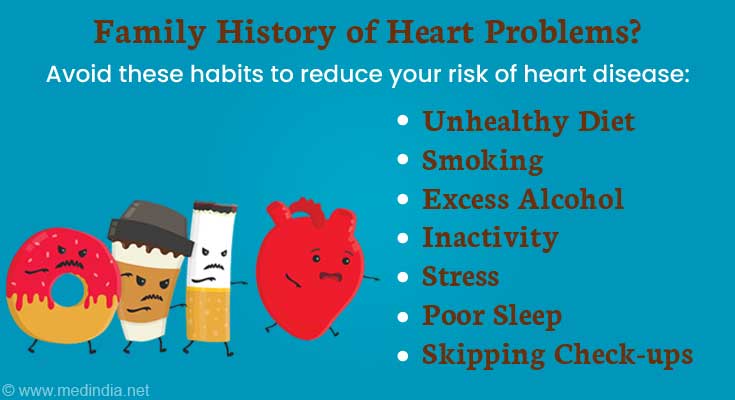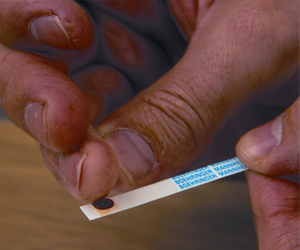- Prevention - (https://world-heart-federation.org/what-we-do/prevention/)
- Know your risk: Family history and heart disease - (https://www.heartfoundation.org.au/your-heart/family-history-and-heart-disease)
- Heart-healthy diet: 8 steps to prevent heart disease - (https://www.mayoclinic.org/diseases-conditions/heart-disease/in-depth/heart-healthy-diet/art-20047702)
- The Effects of Smoking and Drinking on Cardiovascular Disease and Risk Factors - (https://pmc.ncbi.nlm.nih.gov/articles/PMC6527044/)
- Lifestyle Changes to Prevent a Heart Attack - (https://www.heart.org/en/health-topics/heart-attack/life-after-a-heart-attack/lifestyle-changes-for-heart-attack-prevention)
About
An estimated 80% of cardiovascular diseases, including heart disease and stroke, are preventable. Despite being largely preventable, cardiovascular disease causes more than 20.5 million deaths every year(1✔ ✔Trusted Source
Prevention
Go to source). Heart conditions like heart attack or stroke are often influenced by genetic and lifestyle factors.
Did You Know?
80% of heart disease cases are preventable with lifestyle changes. Small steps like healthier eating, more movement, and quitting smoking can save your life. #preventheartdisease #hearttips #medindia
What is Meant by a Family History of Heart Problems?
A family history of heart disease indicates that conditions such as heart attacks or strokes have occurred in close relatives, including parents, siblings, or grandparents. When multiple family members have been affected, this may suggest a genetic or hereditary risk of developing heart disease.
Understanding one’s family history is crucial, as it helps individuals identify their risk factors and take appropriate preventive measures to protect their heart health.
How Family History Influences Heart Disease Risk
A family history of heart disease or condition increases the risk because of genetic factors and shared lifestyle habits. Inherited conditions like high cholesterol, high blood pressure, and other habits can worsen the condition.
They may also experience an early onset of heart disease that indicates genetic vulnerability. Conditions like diabetes and obesity can increase cardiovascular risk. While genetics play a role, adopting healthy habits can reduce the risk and promote heart health(2✔ ✔Trusted Source
Know your risk: Family history and heart disease
Go to source).
A person cannot change the family history but can reduce the risk of experiencing heart problems by avoiding certain habits.
Habits to Avoid For a Healthy Heart
1) Unhealthy Diet
A poor diet can be a leading cause of heart disease. If a person has a family history of heart attacks it is important to be mindful of what they eat. A diet high in unhealthy fats, cholesterol and processed food leads to plaque buildup in the arteries (atherosclerosis) which increases the risk of heart attack.
Foods to Avoid:
- Saturated fats and trans fats can raise bad cholesterol levels and increase the risk of plaque formation in the arteries. Foods like fatty cuts of meat, butter, full-fat dairy products, and commercially baked goods are sources of these fats.
- Processed foods like fast food, packaged snacks and sugary beverages are high in sugar, salt, and preservatives and can lead to high blood pressure, obesity, and high cholesterol.
- Excessive sodium: High salt intake can lead to elevated blood pressure, a major risk factor for heart disease. Avoid processed and canned foods, which tend to be high in sodium.
Heart-Healthy Alternatives:
- Incorporate unsaturated fats (healthy fats) from sources like olive oil avocado, and nuts into the diet. These fats can help raise good cholesterol and improve heart health.
- Foods like oats, quinoa, and brown rice are rich in fiber, which can lower cholesterol and improve heart health.
- A diet rich in various colorful fruits and vegetables provides essential vitamins, minerals, and antioxidants that support cardiovascular health(3✔ ✔Trusted Source
Heart-healthy diet: 8 steps to prevent heart disease
Go to source).
2) Smoking
Smoking is one of the most harmful habits for the heart. It damages blood vessels, raises blood pressure, and increases the risk of blood clots, all of which contribute to heart disease.
Effects of Smoking on the Heart:
- Chemicals in cigarette smoke damage the lining of the arteries, promoting the buildup of plaque and increasing the risk of atherosclerosis.
- Nicotine raises blood pressure and heart rate, which puts additional strain on the heart.
- Smoking promotes the formation of blood clots, which can block blood flow and trigger a heart attack.
The benefits of quitting smoking are immediate and long-lasting. Within a year of quitting, your risk of heart disease is significantly lower. Seek support from healthcare professionals, smoking cessation programs, or counseling to help stop.
3) Excessive Alcohol Consumption
While moderate alcohol consumption can have some cardiovascular benefits (especially red wine), excessive drinking can increase the risk of heart disease.
Risks of Excessive Alcohol:
- Alcohol can increase blood pressure, a leading risk factor for heart disease.
- Excessive drinking can trigger abnormal heart rhythms, known as arrhythmias, which can be dangerous.
- Alcohol is calorie-dense and can contribute to weight gain, which increases the risk of heart disease.
Limit alcohol consumption to no more than one drink per day for women and two drinks per day for men. This can help lower the risk of cardiovascular problems while still allowing some benefits(4✔ ✔Trusted Source
The Effects of Smoking and Drinking on Cardiovascular Disease and Risk Factors
Go to source).

4) Lack of Physical Activity
A sedentary lifestyle is a significant risk factor for heart disease. Lack of exercise can lead to weight gain, high cholesterol, high blood pressure, and other heart disease risk factors.
Regular physical activity helps regulate blood pressure and cholesterol levels, reducing the risk of heart attack. For those with a family history of heart disease, it becomes even more important to remain active.
- Activities like walking, jogging, swimming, and cycling improve cardiovascular health by increasing heart rate and improving circulation.
- Incorporating resistance exercises into the routine can help improve muscle mass and support overall metabolic health.
- Aim for at least 30 minutes of moderate-intensity exercise most days of the week. Incorporating simple movements like walking during breaks can make a difference.
Risks of Inactivity:
- Being overweight or obese increases the strain on your heart and raises the risk of heart disease.
- Lack of exercise can lead to poor circulation, which affects the heart’s ability to pump blood efficiently.
5) Chronic Stress
Chronic stress can elevate levels of cortisol (the stress hormone), which may increase blood pressure and contribute to heart disease. Additionally, stress can trigger unhealthy coping mechanisms, such as overeating, smoking, or drinking alcohol, which further exacerbate the risk of heart attacks.
What to Do Instead:
- Manage Stress Effectively: Regular stress reduction techniques such as mindfulness meditation, deep breathing exercises, or yoga can help lower stress levels.
- Engage in Relaxation Activities: Hobbies like reading, listening to music, or spending time in nature can help you unwind.
6) Inadequate Sleep
Chronic sleep deprivation is linked to higher blood pressure, increased inflammation, and an elevated risk of heart disease. Sleep apnea, a condition characterized by interrupted breathing during sleep, can also contribute to cardiovascular issues.
- Establish a regular sleep routine by going to bed and waking up at the same time each day.
- Create a relaxing bedtime environment by reducing screen time and using calming techniques, like reading or listening to soothing music.
- Aim for 7-9 hours of sleep each night to allow your body to recover and support heart health.
- If you suspect you have sleep apnea or other sleep disorders, seek medical advice and treatment(5✔ ✔Trusted Source
Lifestyle Changes to Prevent a Heart Attack
Go to source).
7) Ignoring Regular Medical Check-ups
Regular checkups are essential for detecting risk factors like high blood pressure, high cholesterol, and diabetes. For those with a family history of heart disease, these screenings are even more critical, as they allow for early intervention and management.
- Visit your doctor regularly for check-ups and screenings. Early detection of risk factors allows for timely intervention and lifestyle modifications.
- Monitor your blood pressure, cholesterol levels, and blood sugar levels regularly.
Having a family history of heart disease means you need to be extra cautious about your lifestyle choices. While you cannot change your genetic predisposition, avoiding unhealthy habits and adopting heart-healthy behaviors can significantly reduce your risk of heart disease. Focus on a healthy lifestyle and live a healthier, longer life.









